|
8/29/2016 1 Comment Happy Homicides 4: Fall into Crime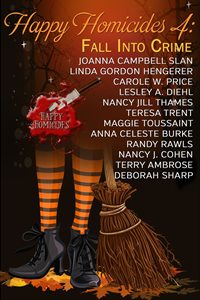 Author Carole Price gave me the heads up about this fun sounding collection of stories. If you're looking for a sampler of different authors writing in a cozy style, you might give this a try. You can't beat the price! Happy Homicides 4: Fall into Crime -- A bountiful harvest of cozy mysteries, including six novellas and seven short stories, plus a special bonus file of recipes and crafts. Only 99 cents. TWO-fer Alert: Buy Happy Homicides 3: Summertime Crime and get Happy Homicides 4: Fall into Crime absolutely FREE! Two books for the price of one (only 99 cents) -- and you get two enormous bonus files full of recipes and craft project ideas for no extra cost. But hurry, this limited offer is good from Aug. 29 to Sept. 4 only. http://bit.ly/fallintocrime
1 Comment
 Blog on Pikes Peak Writers Writing can be a literal pain in the back. Or wrist. Or posterior. Don’t let bad habits ruin your ability to create. Mary Plehal, the professional ergonomics expert at the company where I work, generously shared a slideshow geared toward writers. These tips apply to anyone working on a computer. I used Mary's information in an article posted on the Pikes Peak Writers blog titled Quit Slouching! Ergonomics for Writers, Part One of a planned three part series. 8/15/2016 0 Comments Susan Oleksiw: When Krishna Calls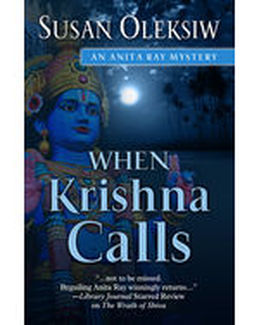 My guest today is Five Star author Susan Oleksiw, author of When Krishna Calls. Susan shares insight gained from living in India, which is woven into an intriguing story line. And what a terrific cover! It’s easy to be nostalgic for the past because we can make the past whatever we want it to be. In reality, even the period thirty years ago was a lot less wonderful than we like to think, but I’m glad I went to India before it began to change and became easier for foreigners. In 1976, I took my first trip to India with no cell phone and no ATM card. I had fifteen dollars in my pocket and the promise of being met by the director of the foundation funding my research. Life is a lot easier now, but new visitors to India will miss a lot. A professor I planned to work with suggested I rent a hotel room and work from there. After all, what did I need with a house? It was so much unnecessary work. He had a point, but I didn’t want to live in a hotel and eat in restaurants for a year. I rented a house, hired a maidservant (everyone has at least one maidservant, even those who are maidservants), and settled in. One of the first lessons I learned is, everyone in India is in debt. We talk about debt in the United States as a terrible burden (for someone in the middle class) or a moneymaking opportunity (for others higher up). In India, it’s a form of public service—debt keeps money circulating through a community, ties one small shop owner to his customers, and ensures that everyone gets to participate in the essential aspects of life, such as an expensive marriage or a special math tutor or a journey to a holy site. My first experience with it came through our maidservant. She had a friend in trouble who wanted to pawn her ration book (a very common way of raising funds). I declined, but over the coming months I loaned numerous small sums that I never expected to see again, making my contribution to the underground economy. But there is a dark side to this hidden world, one that ensnares families for generations. This is the subject of the new Anita Ray mystery. When Krishna Calls explores the desperation that engulfs both lender and borrower in the circumscribed world of village life when one young man is determined to break out. When he’s killed, his wife faces the same trap and the same trappers. Anita sets out to help her, and she finds that she too is caught in the same meshes. I thought I knew a lot about the world of small-scale debt when I began the book, but I learned a lot as I went along. India is home to many unusual practices, and one in particular is familiar to Westerners. The practice of benaami, by which an expensive property is put in the hands of someone who isn’t subject to tax, a straw owner, has been pervasive. The government has tried to stamp it out by enacting a law that states any benaami owner can lay claim to the property and be considered the full, legal owner, regardless of how he or she came to have a name on the deed. This sounds wonderful. But it overlooks just how unscrupulous the real owners can be. No one’s going to let property worth millions of rupees (or dollars) slip away. Anita Ray struggles with saving Nisha, a part-time employee, and her aunt’s tourist hotel. But she also struggles with meeting deadlines for an important photography exhibit in a prestigious gallery. In this book, she has her hands full, but she is always capable. 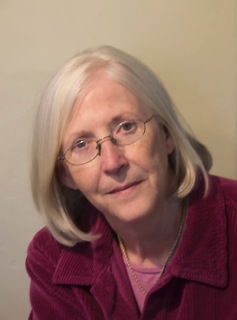 When Krishna Calls: An Anita Ray Mystery (Five Star/Gale, Cengage, 2016), available August 17. You can learn more about Susan and her work at http://www.susanoleksiw.com/ 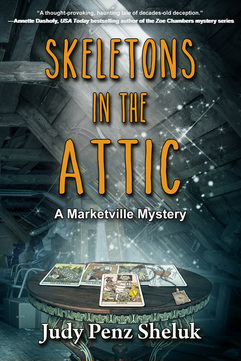 Author Judy Penz Sheluk gives us a sneak peek of her new release, Skeletons in the Attic. A thirty-year-old mystery. A skeleton in the attic. Sometimes secrets are best left buried in the past. Leith Hampton placed the will in front of him, smoothing an invisible crease with a well-manicured hand, the nails showing evidence of a vigorous buffing. I wondered what kind of man went in for a mani-pedi—I was surmising on the pedi—and decided it was the kind of man who billed his services out for five hundred dollars an hour. He cleared his throat and stared at me with those intense blue eyes. “Are you sure you’re ready, Calamity? I know how close you were to your father.” I flinched at the Calamity. Folks called me Callie or they didn’t call me at all. Only my dad had been allowed to call me Calamity, and even then only when he was seriously annoyed with me, and never in public. It was a deal we’d made back in elementary school. Kids can be cruel enough without the added incentive of a name like Calamity. As for being ready, I’d been ready for the past ninety-plus minutes. I’d been ready since I first got the call telling me my father had been involved in an unfortunate occupational accident. That’s how the detached voice on the other end of the phone had put it. An unfortunate occupational accident. I knew at some point I’d have to face the fact that my dad wasn’t coming back, that we’d never again argue over politics or share a laugh while watching an episode of The Big Bang Theory. Knew that one day I’d sit down and have a good long cry, but right now wasn’t the time, and this certainly wasn’t the place. I’d long ago learned to store my feelings into carefully constructed compartments. I leveled Leith with a dry-eyed stare and nodded. “I’m ready.” Callie may think she’s ready, but that’s before she finds out that her father’s will includes a very strange condition: in order to inherit a house in Marketville—a house she hadn’t even known existed—she has to move in for the period of one year and find out who murdered her mother thirty years before, when Callie was six-years-old. SKELETONS IN THE ATTIC is now available for pre-order on Amazon Kindle for the special introductory price of .99 (reg. $4.99). Find it here :http://getbook.at/SkeletonsintheAttic  Judy Penz Sheluk’s debut mystery novel, The Hanged Man’s Noose, was published in July 2015. Skeletons in the Attic, the first book in her Marketville Mystery Series, will be released on August 21, 2016. Judy’s short crime fiction appears in World Enough and Crime, The Whole She-Bang 2, Flash and Bang and Live Free or Tri. Judy is a member of Sisters in Crime, Crime Writers of Canada, International Thriller Writers and the Short Mystery Fiction Society. Find Judy on her website/blog at www.judypenzsheluk.com, where she interviews other authors and blogs about the writing life. Are you ready to face the past with Callie? If so, you can find the book here: http://www.imajinbooks.com/skeletons-in-the-attic  I am pleased to have as my guest today fellow Five Star author Karen McCullough. This multi-published, award-winning author writes fantasy, romantic suspense, and the focus of today's spotlight, amateur sleuth murder mystery. The Problem of the Amateur Detective By Karen McCullough I’m writing a series of contemporary mystery novels (Market Center Mysteries) that includes an amateur sleuth as the primary detective. As anyone who has ever tried it knows, there are a couple of serious challenges facing the project. The first is the sad truth that generally speaking, official law enforcement officers are far better equipped to do the job of solving mysteries, especially homicides, than any amateur. They have better training, more experience, superior equipment, and access to far more services and information. Mysteries set in the past can avoid this problem since professional law enforcement and crime detection is a relatively recent development, but if you’re writing contemporary, you have to account for it. My way to work around the issue is to put my amateur sleuth in a situation where she has access to more information about the situation than the police do and a better chance to sift out what’s relevant. Heather McNeil is assistant to the director of market center where my series is set. Although it’s not exactly her job description, she’s the person who listens to grievances, solves problems, settles disputes, and generally keeps her metaphorical finger on the pulse of activity during shows and exhibitions. She knows the people involved and is in their midst all day, every day. When something drastic happens, like murder, Heather already has some background on the crime, and some understanding of the personalities and motivations involved. And while she doesn’t have the technical resources the police do, she spends a lot of time talking to the people involved. I’ve made her the type of person who is easy to talk to, one who listens and is known to be good at solving problems. As a result, she collects more information than the police can. She gets deeper into various problems, is able to sort through that data to find the relevant pieces, and sees connections that others miss. One other way I use to overcome the problem of the amateur detectives is by confining the time frame. Most trade shows and exhibitions last from three days to a week at most and exhibitors and attendees come from all over the world. If a mystery isn’t solved within the time frame of the show itself, the witnesses and suspects scatter and the likelihood of a resolution goes way down. All that suggests that a smart, quick-witted person in the midst of the show all day, every day, talking constantly with the principals, might just have an edge over the officials in figuring out who done it and why. Then of course, there’s the other problem with setting a series of amateur mysteries in one place, sometimes known as the Cabot Cove problem after the TV series Murder She Wrote. Why would anyone want to live in a place that has as many murders as Cabot Cove, Maine? In my series, the question becomes: Who is going to want to attend any event at a place where murders have already occurred? And aren’t the police going to start getting concerned about this nasty localized crime wave? Sadly, I don’t really have a good answer for that one yet. 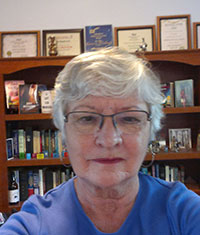 Author Karen McCullough Author Karen McCullough Bio: Karen McCullough is a web designer by profession, and the author of a dozen published novels and novellas in the mystery, romantic suspense, and fantasy genres as well. She has won numerous awards, including an Eppie Award for fantasy, and has also been a four-time Eppie finalist, and a finalist in the Daphne, Prism, Dream Realm, Rising Star, Lories, Scarlett Letter, and Vixen Awards contests. Her short fiction has appeared in several anthologies and numerous small press publications in the fantasy, science fiction, and romance genres. She has three children, four grandchildren and lives in Greensboro, NC, with her husband of many years. Website: http://www.kmccullough.com Blog: http://www.kmccullough/kblog Facebook: https://www.facebook.com/KarenMcCulloughAuthor Twitter: https://twitter.com/kgmccullough Blurb for Wired for Murder: Heather McNeil, assistant to the director of the Washington DC Market Show Center, handles many of the day-to-day issues that arise during the shows, exhibits, and conferences being held there. The first day of the Business Technology Exposition provides her with plenty of opportunities to demonstrate her skill at settling disputes, refereeing arguments, and even breaking up fights. When the president of industry-leader MegaComp has a very public argument with a man who accuses the company of stealing an important technical concept, she watches it but doesn’t have to intervene. Later, though, the accuser returns a phone call from Heather, and she becomes an unwilling audience to his murder. Heather is more than happy to leave the investigation to the police, but she’s the person everyone talks to and she soon learns more than she wanted to know about the victim and all the people who didn’t like him very much, including several who might have motives for murder. Buy links: Kindle: https://www.amazon.com/dp/B01F81SNDQ Amazon print: https://www.amazon.com/Wired-Murder-Market-Center-Mysteries/dp/153502027X/ Smashwords: https://www.smashwords.com/books/view/649290 Nook: http://www.barnesandnoble.com/w/wired-for-murder-karen-mccullough/1124077937?ean=9781535020275 iTunes: https://itunes.apple.com/gb/book/wired-for-murder/id1133875090?mt=11 Kobo: https://store.kobobooks.com/en-us/ebook/wired-for-murder-1 |
Subscribe to this blog: |
Proudly powered by Weebly
 RSS Feed
RSS Feed